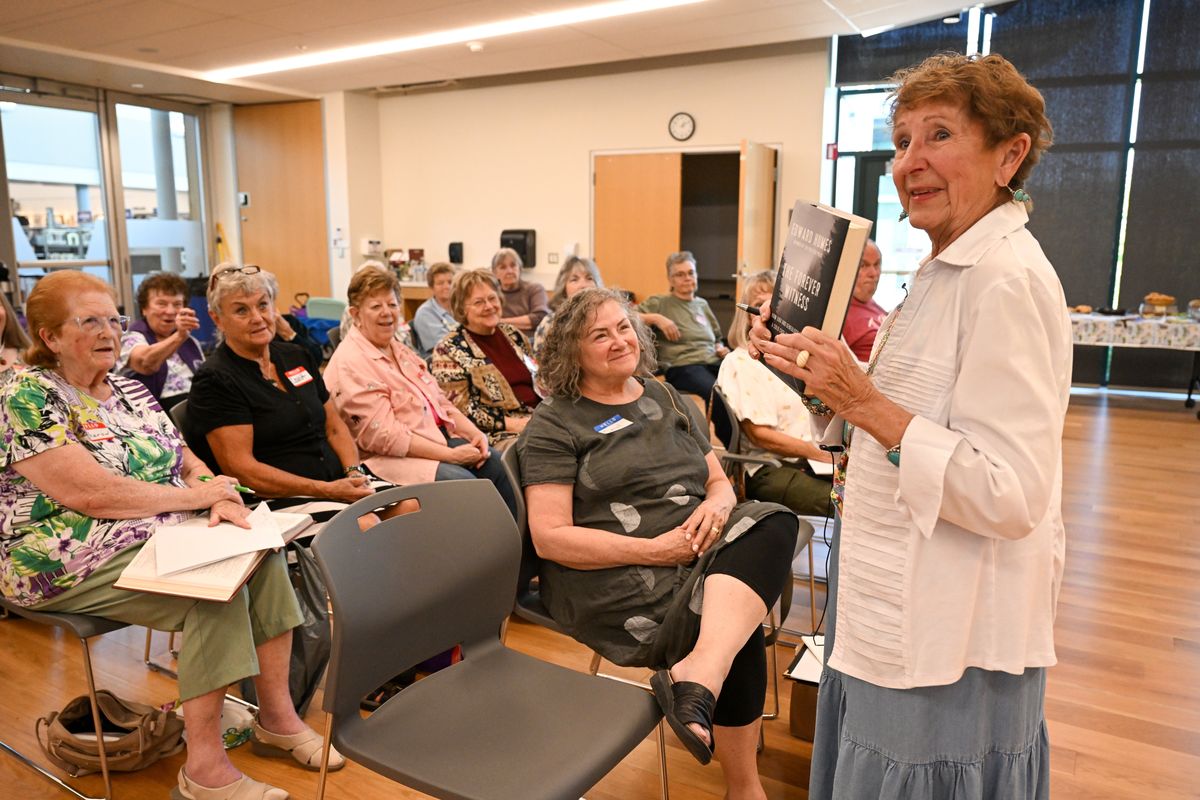Hunting through history: Genealogical society helps people discover their roots

The disease is insidious.
It usually starts with a question. For Dolly Webb, it was, “How did an 18-year-old from England end up in a little town in Kansas?”
Webb is the president of the Eastern Washington Genealogical Society, and that simple question about her grandfather propelled her into the world of genealogy.
“I wanted to find out about my dad’s family,” she said.
When she read a newspaper column about genealogy by Donna Potter Phillips, she knew she had a connection to uncovering her family’s history.
Phillips has been a member of the EWGS since 1975, and the organization has been around since 1935.
“It’s a pox – a disease,” said Phillips about genealogy. “All it takes is rubbing elbows with or coming in contact with a genealogist.”
For her, the lure was discovering the story of her grandmother, a German immigrant who traveled to America alone.
“That’s what it takes for most of us,” she said. “A family story. Everybody has a story that’s unique to them. If you don’t pursue the story, it’s lost.”
After joining the EWGS, Webb discovered that her great-grandmother immigrated to America from England first, and then her grandfather followed in 1880.
“It’s like a scavenger hunt,” she said. “It’s so thrilling when you find the information you’ve been looking for!”

The advent of the internet was a boon for genealogists.
“When I first started we had to write letters,” Phillips recalled. “It took months to find out anything!”
That paper trail is why Jennilyn Weight came to genealogy reluctantly.
“I grew up in a family of genealogists,” she said.
Her mother kept in touch with all their relatives and jotted down their stories.
“I’d come home from school, and there would be papers all over the kitchen table and on the floor, and she’d say, ‘Don’t touch!’ ” Weight recalled. “I swore I’d never do genealogy.”
Now, Weight, a member of the Church of Jesus Christ of Latter-day Saints, is the membership chair for EWGS and volunteers at the LDS Family Search Center.
“ (Genealogy is) a dangerous sport because it’s so addictive,” she said.
That proved true for Chris MacPherson, who recently joined the group.
“I’m just learning about genealogy and how to research, but I’ve found a cousin, who was also interested, and she’d done a lot of work,” MacPherson said.
She’s been able to trace her family back to the American Revolution. One ancestor’s home in Massachusetts is still standing and is a tourist attraction.
“His son was a Green Mountain Boy in Vermont,” she said.
Dolly Webb said putting your ancestors’ stories in historical context is especially satisfying.
“You have to be interested in history,” she said. “It’s not just chasing dead people – you’re studying history.”
In addition to the internet, advances in DNA testing have had a huge impact on genealogy.
“It’s such an exciting time to be in this field,” said Webb. “Genealogy is at the forefront of this emerging science.”
MacPherson discovered knowing your family’s health history can inform decisions regarding your own health.
“My dad passed away at 57,” she said. “My grandpa died at 54 – an uncle died at 49.”
They all suffered from heart disease. MacPherson and her three sisters have/had heart disease, but her three brothers don’t.
“My mom had open-heart surgery, and so did I this spring,” she said. “Heart disease runs in both sides of my family.”
That’s why she’s excited that the EWGS fall seminar on Oct. 7 will focus on DNA. The public is welcome to attend the workshops. While there is a fee for the fall seminar and luncheon, the monthly meetings are free. They are held in-person and via Zoom on the first Saturday of each month. If you choose to join the organization, membership is $25.
“It’s a great group of people,” said MacPherson. “I’m already applying what I’ve learned.”
However, she admits she still has much to discover.
It’s a sentiment Donna Potter Phillips knows well despite her 48-year membership in the group.
“You can never learn everything you want to know because you can only go as far back as the records go,” she said.